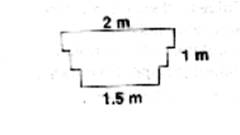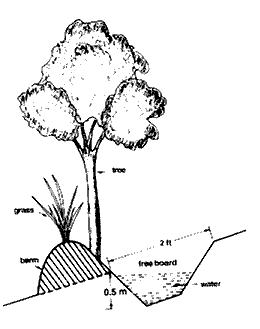/topics/groundwater-recharge
Groundwater Recharge
Traditional techniques of water management - Interesting cases presented by Farhad Contractor & Rajendra Singh
Posted on 24 Nov, 2009 09:58 PMRajendra Singh of Tarun Bharat Sangh and Farhad Contractor of Sambhaav Trust, had
Storm water management and artificial recharge - A talk by Dr.S.K.Jain
Posted on 24 Nov, 2009 12:16 AMAll these decades from early twentieth century, storm water and artificial recharge of aquifers have seldom been an area of consideration for planners and policy makers. The country appeared to be oblivious to the fact that these too are integral part of the resources that we need to take care of before it starts hitting back at us in our daily lives!
Water conservation by industry - A case study of Reliance Industries Limited (Dahej)
Posted on 17 Nov, 2009 05:04 PMThe various initiatives taken up include utilising backwash water for developing Jatropha plantations, recovering waste water, ground water recharging, utilisation of waste steam and reducing steam consumption, increasing cycle of concentration in all cooling towers and more.
National seminar on " Groundwater Recharge : Quality and Auditing in Hard Rock" , MSP Mandal's college, Aurangabad
Posted on 11 Nov, 2009 05:22 PMM.S.P Mandal's Deogiri College,Aurangabad, Maharastra is organising an National Seminar on "Groundwater Recharge, Quality and Auditing in Hard Rock"
Rain water harvesting to recharge bore wells?
Posted on 18 Sep, 2009 04:43 PMWE have a farm in Bangalore North, Hennur Road, with a number of borewells that have been unsuccesful or dried up. About 5 years back we built a dam across a Nalla (Natural erosion)in the farm, to collect rain water. The size of the Nalla is 300x20 ft approx with a water depth of over 7ft in good rainfall time. This year for the first time, thank God, it has not dried up.
Watershed scale planning- Application of rainwater harvesting techniques
Posted on 15 Sep, 2009 04:20 PMThe first project was conducted by the BAIF Development Research Foundation in the Hassan District of Karnataka. They created a linked network of 350 farm ponds covering 700 hectares of the watershed.
How to create a farm pond for water storage
Posted on 15 Sep, 2009 03:56 PMThe ideal farm pond should be dug into the ground in a naturally low-lying area. Some of the soil that is removed can be used to construct an earthen berm around the pond, which should be planted with trees and grasses for stability. The shade and wind protection provided by the raised mound and vegetation will reduce evaporative losses.
Groundwater recharge structures
Posted on 15 Sep, 2009 03:41 PM Where conditions are favorable, it is better to recharge the groundwater than to create surface ponds for storage. This approach minimizes evaporative losses, and often improves water quality. Recharge structures can be anything from a small pit simply dug into the soil, to a borewell converted for recharge. Recharge structures are useful in sloping landscapes where the water would not otherwise have time to sink into the ground before running off.
Where conditions are favorable, it is better to recharge the groundwater than to create surface ponds for storage. This approach minimizes evaporative losses, and often improves water quality. Recharge structures can be anything from a small pit simply dug into the soil, to a borewell converted for recharge. Recharge structures are useful in sloping landscapes where the water would not otherwise have time to sink into the ground before running off.
Tank Development - Design and features
Posted on 15 Sep, 2009 02:11 PMIf the intention is to develop a tank by holding back a large amount of water, then the dam must be carefully designed (with the assistance of experienced local people or engineers).
Techniques to slow runoff and erosion from steeply sloping land
Posted on 15 Sep, 2009 12:37 PM These techniques are useful to slow runoff and erosion from sloping land, and also to revegetate degraded areas. Areas with high rainfall, steep slopes, and thin soils should use slightly graded bunds / terraces / trenches to allow some drainage.
These techniques are useful to slow runoff and erosion from sloping land, and also to revegetate degraded areas. Areas with high rainfall, steep slopes, and thin soils should use slightly graded bunds / terraces / trenches to allow some drainage.





